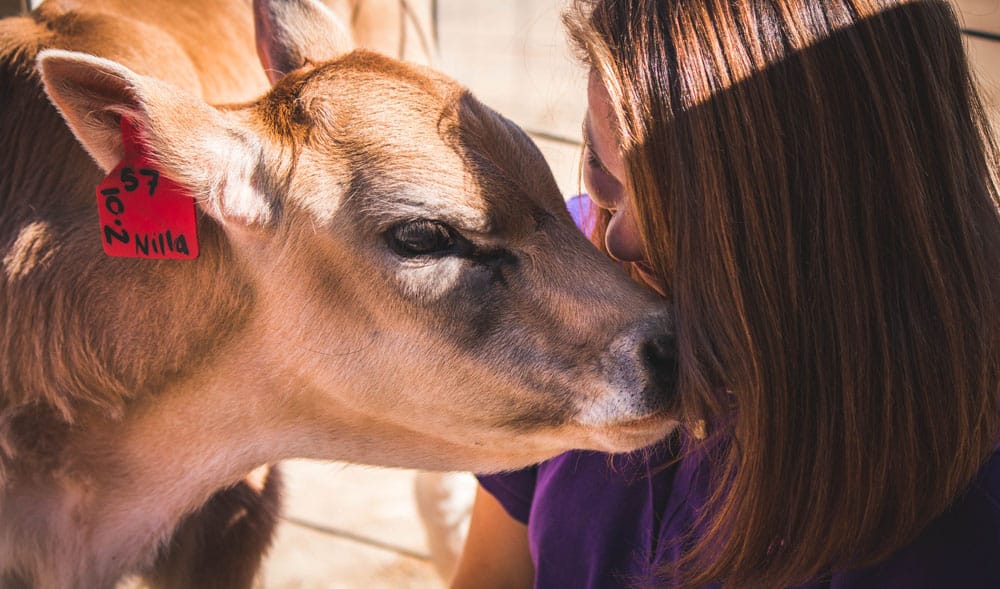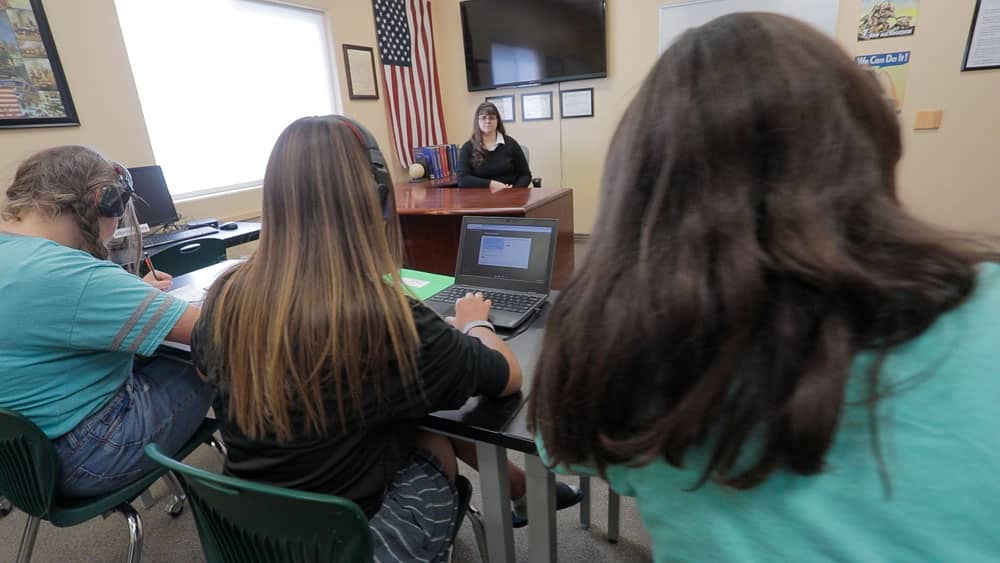Understanding the Connection Between Mental Health and Autism
For many people with autism, managing mental health is a significant part of their life. Research shows that autistic teens are more likely to experience mental health challenges compared to their peers, often due to the challenges of navigating a neurotypical world. Common experiences include anxiety, which might appear when dealing with unexpected changes or social situations, and depression, which can develop particularly during the teenage years.
According to Autism Speaks, many autistic teens experience co-occurring mental health challenges, such as:
- Anxiety
- Depression
- Attention difficulties
- Obsessive-compulsive behaviors
- Schizophrenia
- Bipolar Disorder
- Eating disorders

Experiencing mental health challenges is particularly difficult for teen girls on the autism spectrum because these challenges often present differently than they do in teens without autism. The common signs that doctors look for might not apply to ASD girls, making it harder to get the correct support. It is crucial to work with healthcare providers who are experienced in mental health and autism. Finding the right support can make a huge difference in helping your daughter manage these challenges and develop healthy coping strategies. One of the reasons autistic girls face unique mental health challenges is that many go undiagnosed for years, leaving them without the right support. Understanding why this happens is crucial for early intervention.
Why Do Autistic Girls Go Undiagnosed?
Masking Autistic Traits
It is common for parents to wonder why their daughter’s autism wasn’t identified earlier. The reason for many girls with autism going undiagnosed longer than boys is that they present their autistic traits differently than boys do. This is partially because the majority of diagnostic criteria for autism were developed for boys. Oftentimes, girls become good at “masking” their autism by mirroring the social behaviors of their peers, like maintaining eye contact or forcing a smile in social situations, for example. While this might help them “fit in” more socially, it can be mentally and emotionally draining and lead to depression or anxiety. Beyond masking, autistic girls may also display different social behaviors and interests that make their autism less recognizable.
Interests and Social Behaviors
Teen girls on the autism spectrum will often have intense interests like ASD boys, but their interests are deemed more socially acceptable or common, making their autism harder to identify. Because the well-known signs of autism are not as obvious in girls, parents might notice their daughter struggling with friendships, experiencing intense emotions at home, or doing well academically while missing unwritten social rules. Many autistic girls develop anxiety, depression, or eating disorders as teenagers when they don't understand why they feel different. Look for signs like social exhaustion, strong reactions to routine changes, perfectionism, few close friends, or 'performing' in social situations rather than engaging naturally. A diagnosis at any age can help your daughter understand herself and access proper support.
You’re Not Alone—We’re Here to Help
If your daughter is struggling and you’re looking for guidance, our team is here to listen. Call us today to explore how Discovery Ranch South can support her journey.
Common Misconceptions About Autism

Autism is a wide spectrum, with many different types of people on it. Outdated myths about autism can make it harder for people to get the support that they need. Here are a few common misconceptions about autism and the reality behind them:
- "Autism is More Common in Boys Than in Girls" – Many autistic girls go undiagnosed because diagnostic criteria were developed for boys.
- "People With Autism Lack Emotion" – Autistic individuals often feel deep empathy but express it differently.
- "Autism is Just High or Low Functioning" – The spectrum includes a wide range of strengths and challenges.
These misconceptions don’t just affect autistic individuals; they also leave parents feeling unheard when they seek support for their daughters.
Validating Parents’ Concerns and Experiences
Parenting a teen girl on the autism spectrum comes with many joys in life, as well as unique challenges. Many parents like you experience a long journey or seeking answers and feel dismissed by healthcare providers. It is normal to feel isolated as a parent when your concerns about your daughter are minimized. If you notice your daughter is struggling with social connections, experiencing intense emotions, or showing signs of anxiety or depression, trust your parental intuition. These observations can help healthcare providers understand and support your daughter better.
Every family’s journey with autism is unique. Some parents discover their daughter's autism diagnosis during early childhood, while others piece together the puzzle during the teenage years. No matter your experience, know that your efforts to support and understand your daughter make an impact in her life. Connecting with other parents can provide valuable emotional support and practical advice from those who truly understand your experience.

Why Understanding This Connection Matters

Recognizing the link between autism and mental health challenges opens up windows of support for ASD teens during these formative years of their lives. Many ASD girls face misdiagnoses or have their concerns overlooked, which delays access to helpful resources. Understanding that challenges like anxiety or depression may stem from autism-specific experiences—such as sensory overwhelm or masking—allows for more effective interventions.
Understanding the connection between mental health struggles and autism allows professionals to address their root causes. “Increasing awareness can help to dispel misconceptions and stigma and foster an environment of acceptance and support.” (Autism-Related Mental Health Challenges, 2024). This shift moves away from viewing autism-related challenges as deficits and instead recognizes them as different ways of experiencing the world. By focusing on the strengths of having ASD, parents can help their children build self-esteem and resilience—essential tools for lifelong well-being. Recognizing these challenges is just the first step—knowing where to seek the right support is just as important.
Next Steps: Seeking Help and Support
Finding the right support for your daughter is key to her development and well-being. While some autistic teens thrive with outpatient therapy or school accommodations, others may need more comprehensive care.
Why Choose Discovery Ranch South?
Discovery Ranch South is a residential treatment program designed specifically for autistic teen girls. Our program offers:
- Licensed clinicians experienced in ASD-specific therapy
- Evidence-based approaches, including sensory regulation therapy and social skills development
- A structured, supportive environment that helps girls build confidence and independence


A Strengths-Based Approach to Autism
At Discovery Ranch South, we don’t view autism as something that needs to be “fixed.” Instead, we focus on:
-
Helping girls navigate challenges in a neurotypical world
-
Developing foundational skills like sensory processing, emotional regulation, and self-awareness
-
Providing a safe, supportive cabin environment where ASD girls can thrive
Building Lasting Skills for Success
Through individualized care and therapies, autistic teens at Discovery Ranch South learn to:
- Understand and navigate social interactions
- Develop practical life skills
- Process social situations with the guidance of trained staff
- Foster self-compassion and confidence
For families seeking expert care, Discovery Ranch South empowers autistic teen girls to thrive while embracing their authentic selves.

Conclusion
Figuring life out as a neurodivergent teen can be overwhelming, but with the right support, you can help your daughter thrive. Understanding the link between autism and mental health is crucial to helping her feel seen, heard, and supported. Whether through school accommodations, outpatient therapy, or specialized residential programs like Discovery Ranch South, there are paths forward that honor her unique strengths and challenges.
As a parent, the effort that you are making in educating yourself and seeking support for your child is making a profound difference in her life. With the right community and support, she can develop healthy coping skills and confidence and build meaningful connections. If you’re exploring treatment options, Discovery Ranch South provides a compassionate, structured environment where teen girls can grow, heal, and gain the skills they need for lifelong success.
